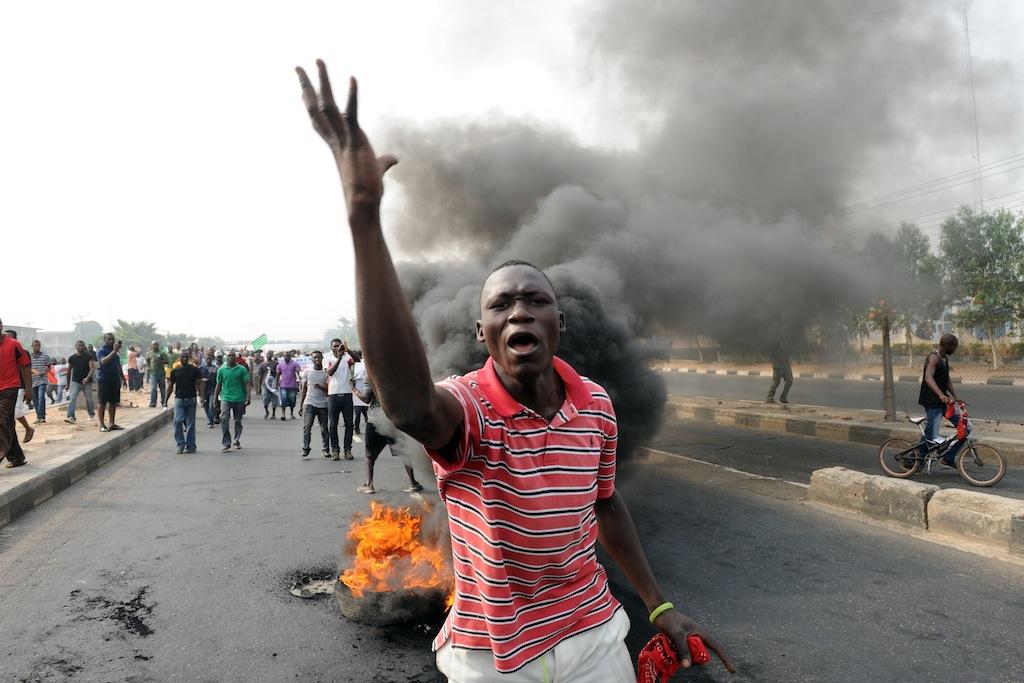Nigeria News: Fuel subsidy protests turn deadly, three people killed
A man gestures in front of a bonfire on Ikorodu Road in Lagos during a protest against soaring petrol prices following government’s decision to abolish decades-old fuel subsidies, on January 9, 2012 in Lagos. One protester was shot dead in Nigeria’s commercial capital Lagos during the national strike over fuel prices, a union leader said.
NAIROBI, Kenya — Three people died during the first day of nationwide protests in Nigeria over the removal of fuel subsidies that caused gasoline prices to more than double, but on Tuesday the unrest continued.
More from GlobalPost: Fuel protests in Nigeria turn violent
Flaming roadblocks were erected in Lagos as anger aimed at the government of President Goodluck Jonathan continued. The three who died on Monday were reportedly shot dead by police who used live rounds and tear gas to disperse crowds in Lagos and Kano.
Perhaps it is trying too desperately hard to look for silver linings, but at least the nationwide anti-government protests are bridging the north/south, Muslim/Christian divide in Nigeria, dampening tensions that have been stoked by Islamist group Boko Haram, which have recently threatened to erupt into full-blown sectarian strife.
More from GlobalPost: Nigerian Nobel laureate Soyinka on fears of possible civil war
The article you just read is free because dedicated readers and listeners like you chose to support our nonprofit newsroom. Our team works tirelessly to ensure you hear the latest in international, human-centered reporting every weekday. But our work would not be possible without you. We need your help.
Make a gift today to help us reach our $25,000 goal and keep The World going strong. Every gift will get us one step closer.
